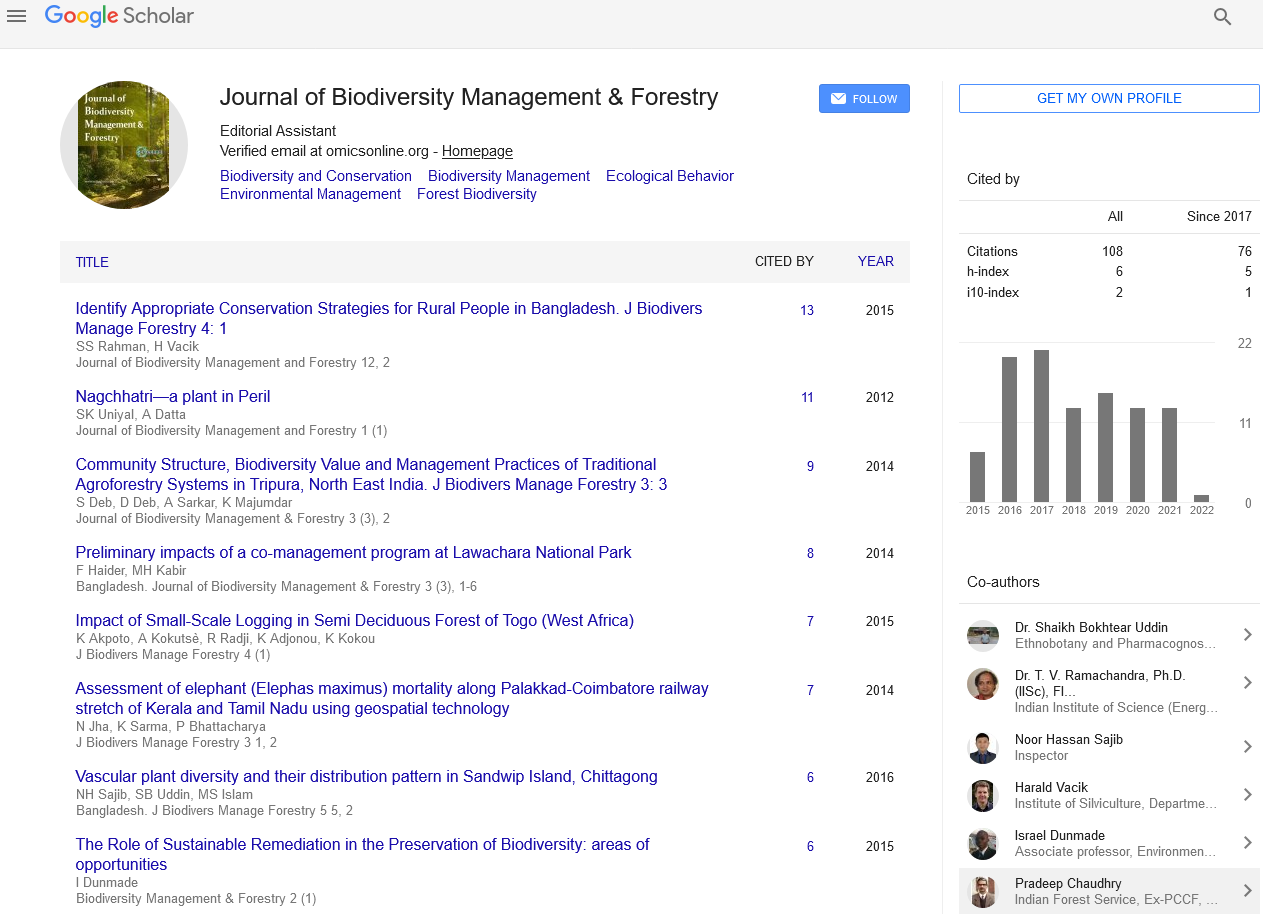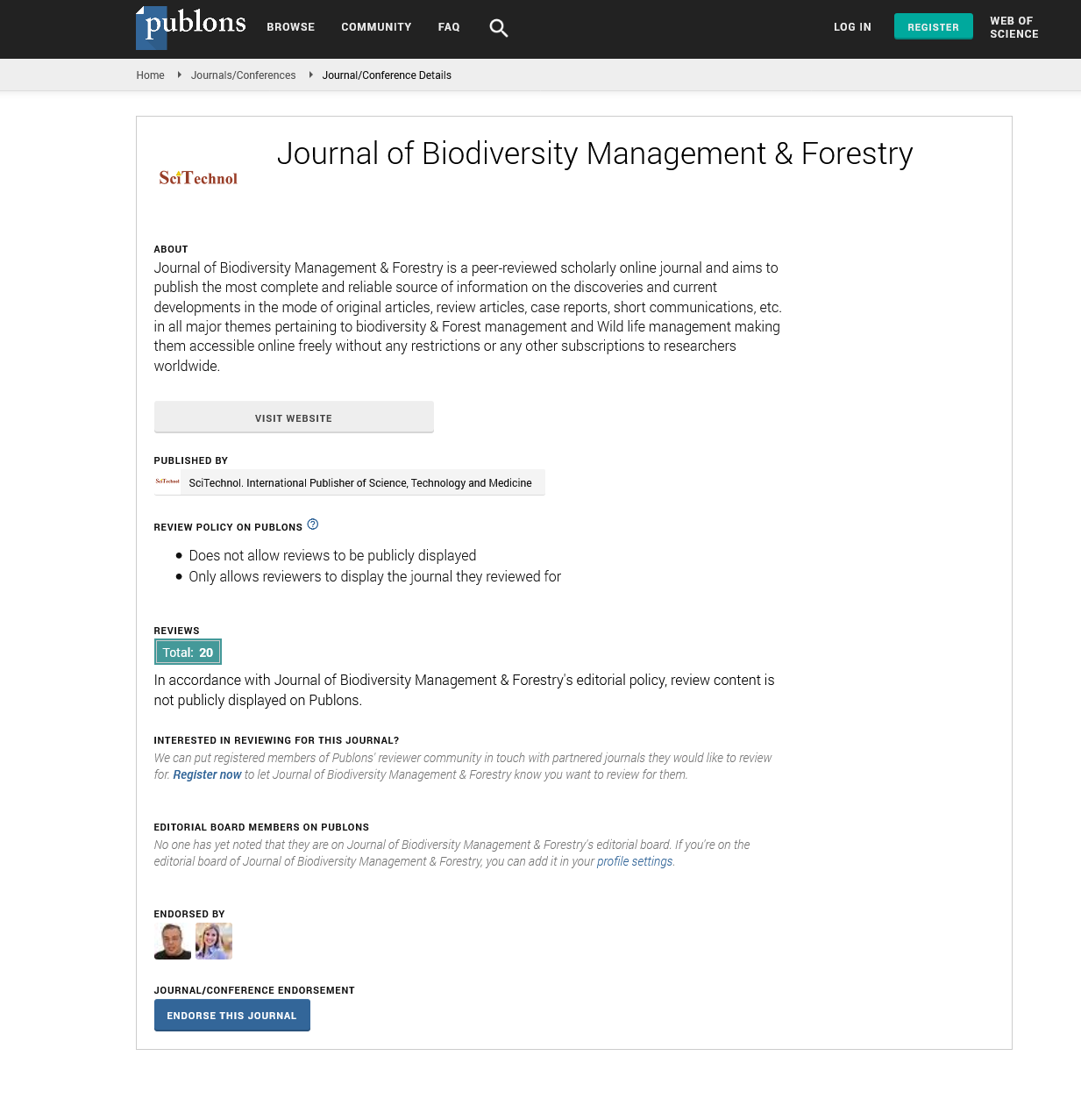Research Article, J Biodivers Manage Forestry Vol: 7 Issue: 2
Ethno-medicine Diversity of Some Forest Reserves in the Niger Delta, Nigeria
Ozumba CI1*, Ezike AC2 and Ozumba MB3
1Environment Department (Biodiversity Team), The Shell Petroleum Development Company, Port Harcourt, Nigeria
2Department of Pharmacology &Toxicology, Faculty of Pharmaceutical Sciences, University of Nigeria, Nigeria
3Department of Geology/Geophysics/Physics, Federal University Ndufu Ama- Ikwo, Ebnyi State, Nigeria
*Corresponding Author : Ozumba CI
Environment Department, The Shell Petroleum Development Company, Port Harcourt, Nigeria
Tel: +2348070321027
E-mail: C.Ozumba@shell.com;Chinyeozumba@yahoo.com
Received: May 29, 2018 Accepted: June 18, 2018 Published: June 25, 2018
Citation: Ozumba CI, Ezike AC, Ozumba MB (2018) Ethno-medicine Diversity of Some Forest Reserves in the Niger Delta, Nigeria. J Biodivers Manage Forestry 7:2. doi: 10.4172/2327-4417.1000197
Abstract
Despite advances made in modern and orthodox medicine, traditional medicine has gained renewed attention in healthcare services given the inadequacy of the existing health facilities, resources and a growing population. Traditional medicine knowledge is, however, been endangered by mortality of custodians of the knowledge, extinction of plant resources, inadequate scientific research, and poor documentation and patenting. As part of its corporate social responsibility to the host communities and in a bid to conserve biodiversity in alignment with the Rio declaration, Shell Petroleum Development Company of Nigeria Limited (SPDC), commissioned a pilot study in 2014 to document ethno-medicine and associated indigenous knowledge held by the people of different community forests in the Niger Delta.
The study obtained data using field surveys involving, transect walks, individual and focus group discussions, interviews and questionnaires from knowledgeable people in the locality. These included local names, medicinal uses for ailments, part(s) used, mode of preparation and administration. Voucher plant specimens collected were identified using standard taxonomic procedures. A total of about 55 plant genera of remarkable medicinal importance distributed amongst 28 families were identified. The use of animals like snake, fish and monitor lizard for medicinal purposes was documented. Some of the plants had more than one therapeutic use and can be administered singly or in combination for additive or /synergistic effect. In making medicinal preparations, leaves, roots, stems, aerial parts, seeds or the whole plant could be used. Altogether, 38 different health problems including malaria, epilepsy, diabetes, diarrhea, convulsion, measles and pile among others could be treated using remedies from medicinal plants.
The results of this study showed that SPDC has not only ensured biodiversity conservation in the Niger Delta, but has promoted the healthcare of the forest communities thereby helping to improve local health systems of their investment in the host communities.
 Spanish
Spanish  Chinese
Chinese  Russian
Russian  German
German  French
French  Japanese
Japanese  Portuguese
Portuguese  Hindi
Hindi 
